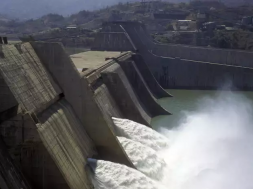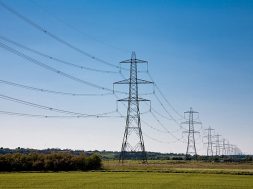
Swift policy changes needed to make good use of the 30-year window provided by the Paris Agreement.
More than 3.6 crore Indians along the country’s coastline will be affected by flooding in three decades, says a study by Climate Central, a US-based research organisation. The study warns that more than 30 crore people across the world will face chronic floods by 2050. By 2100, land home to more than 20 crore could permanently go under. These alarming projections mean that there will be increased pressure on world nations to accept tougher targets on greenhouse gas emissions to stop drastic climate change.
The new projections pose a big dilemma for India which depends on coal for most of its energy needs. With the current state of technology, wind and solar energy cannot meet more than a quarter of the country’s energy requirements. India will continue to depend on coal for most of its energy needs in the near future. The Paris Agreement of 2015 bans uses of thermal coal by developed markets by 2030 and all nations by 2050. This means India has a window of 30 years to exploit its massive coal reserves.
India is the fourth-largest coal producer in the world with the annual output touching 662.79 million tonne in 2016–17. The country has coal reserves of 315.14 billion tonne. Still, India imports a significant part of its coal requirements. India’s coal imports rose to 190.95 million tonne in 2016–17 from 49.79 million tonne in 2007–08. Imports are rising at a fast clip while the country’s huge reserves lie unexplored. India will have to increase its coal output to a billion tonne per year to meet its requirement of coal.
There is a growing realisation in the government that coal is key to India achieving the target of becoming a $5 trillion economy in the next five years. In August India opened up its coal sector by allowing 100% foreign investment in coal mining. Till then, foreign investment was allowed only in captive mining, or for own use by investing companies. Despite the easing of restrictions, not many foreign firms have evinced interest in the sector. One of the reasons is that Paris Agreement has placed several restrictions on coal mining that are forcing several global firms such as Anglo American, Rio Tinto, Mitsubishi, Mitsui & Co, and BHP out of coal business. There are also a number of financial institutions that have put curbs on funding coal business.
In September, a high-level committee set up by the Union government had recommended major reforms including the privatisation of the coal industry. One of the major recommendations is a complete shift from captive mining. The panel has recommended an end to the practice of direct allotment to the public sector, thereby removing a major disadvantage faced by the private sector in coal mining. The biggest challenge for foreign companies entering coal mining in India is the presence of Coal India that owns many of the country’s best mines where mining is easier and cheaper. The foreign investors had to vie for inferior mines with the country’s private firms.
The government is currently in the process of auctioning 27 coal mines. While the government hopes to attract much-needed foreign investment into the sector, the current round of bidding is also not without its share of problems. The mines offered are in the western part of the country while the consumer industries are situated in the eastern part. So the response to the offer could be less enthusiastic than expected.
India’s coal policy was always dictated by the requirements of the domestic industry. All major policy decisions in independent India were taken at a time when the private sector was not in a position to meet the capital and technology needs of the growing industry. The situation has undergone a drastic change in the last four decades. The government should create an open market for coal to facilitate investment by India’s private sector and foreign mining firms. The government must demolish Coal India’s dominant position in the industry and create a predictable policy environment to make efficient use of the 30-year window provided by the Paris Agreement.













